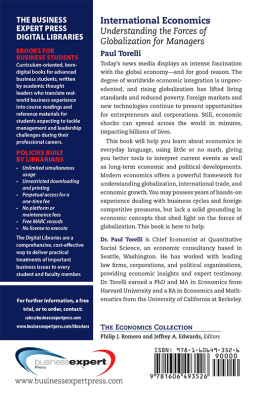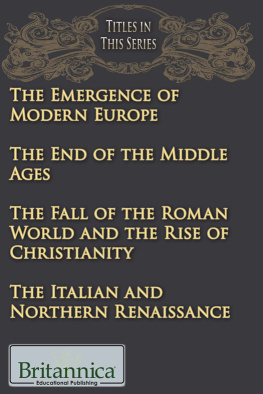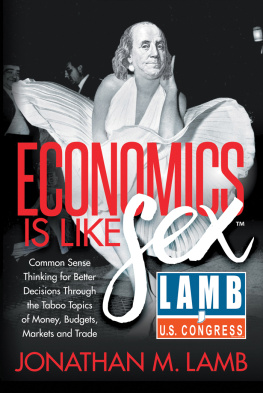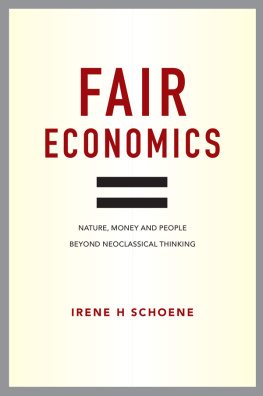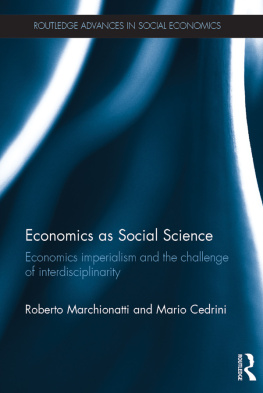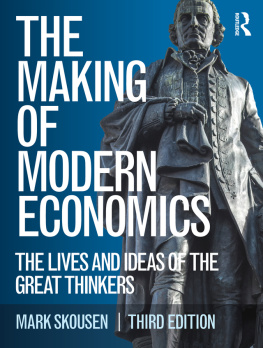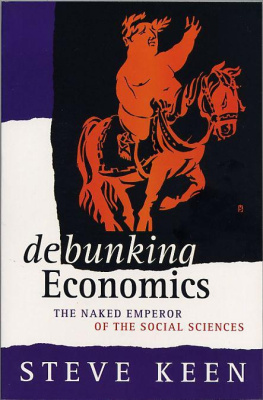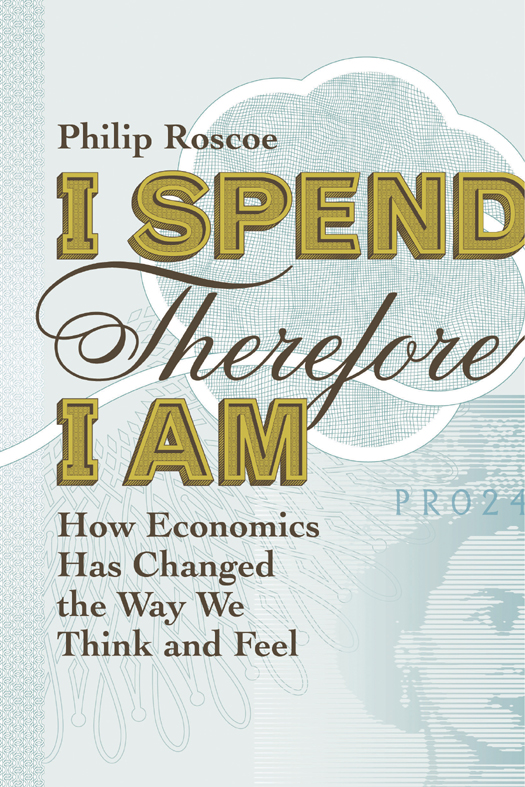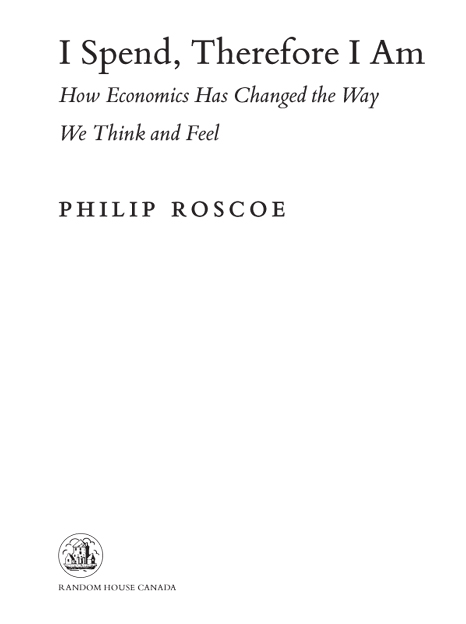PUBLISHED BY RANDOM HOUSE CANADA
Copyright 2014 Philip Roscoe & Company Ltd.
All rights reserved under International and Pan-American Copyright Conventions. No part of this book may be reproduced in any form or by any electronic or mechanical means, including information storage and retrieval systems, without permission in writing from the publisher, except by a reviewer, who may quote brief passages in a review. Published in 2014 by Random House Canada, a division of Random House of Canada Limited, Toronto, and simultaneously in Great Britain by Viking, an imprint of Penguin Books Ltd., London. Distributed in Canada by Random House of Canada Limited.
www.randomhouse.ca
Random House Canada and colophon are registered trademarks.
Library and Archives Canada Cataloguing in Publication
Roscoe, Philip, author
I spend therefore I am : how economics has changed the way we think and feel / Dr. Philip Roscoe.
ISBN 978-0-345-81267-4
eBook ISBN 978-0-345-81269-8
1. EconomicsSociological aspects. 2. EconomicsMoral and ethical aspects. I. Title.
HM548.R67 2014 306.3 C2013-905758-7
Cover design based on an original by Darren Wall
v3.1
To the boys grow up brave and kind
And Atlas through hard constraint upholds the wide heaven with unwearying head and arms, standing at the borders of the earth before the clear-voiced Hesperides; for this lot wise Zeus assigned to him.
Hesiod, Theogony, 507f.
At any rate, the international press made a great hue and cry about this find. Handbooks, anthologies, surveys, literal translations, authorised and pirated reprints of Mankinds Greatest Masterpiece filled the world, and still do. Almost immediately, reality caved in at more than one point Contact with Tln, the habit of Tln, has disintegrated this world.
Jorge Luis Borges, Tln, Uqbar, Orbis Tertius
Of what happened later in the evening nothing definite can here be stated. None of the guests later on had any clear remembrance of it. They only knew that the rooms had been filled with a heavenly light, as if a number of small halos had blended into one glorious radiance. Taciturn old people received the gift of tongues; ears that for years had been almost deaf were opened to it. Time itself had merged into eternity. Long after midnight the windows of the house shone like gold, and golden song flowed out into the winter air.
Isak Dinesen, Babettes Feast
Omnia vincit Amor; et nos cedamus Amori.
Virgil, Eclogues, X
Contents
INTRODUCTION
1. I Spend, Therefore I Am
Imagine that you set off to buy flowers for your beloved. Perhaps you want Himalayan orchids nothing but the best for the special one in your life or perhaps something quieter, more restrained. You have some time on your hands, and you go from shop to shop, examining the different goods available. The supermarket offers you a selection of ready-made bouquets, cellophane wrapped; the price is good, though they are bright and loud under the strip-lighting. The perfumed boutique of the artisan florist has a bell on the door that tinkles as you enter; buckets overflowing with luxuriant blooms promise superior quality and bespoke arrangement. But the tissue paper wrapping and intricate ribbons will cost you plenty, so if you prefer, the cheerful dodger on his market stall will sell you a bunch of daffodils and wrap it in newspaper for the journey home. In each instance you judge quality and set it against price, performing a careful calculation of expense and return. With enough time on your hands, you would visit more shops, comparing identical bouquets across different supermarkets, setting one florist against another, determined to find the best price for the same goods.
This is a natural enough way to act, you might think. The transaction in the flower shop is by its nature economic understood as such by law, custom and by both parties to the deal. You will be required to hand over payment, and in return you will expect goods of the best possible quality for the price. You are free to select in a rational manner, maximizing your return, and once the purchase is completed you have no obligation to the florist, nor they to you. The shopkeeper for you have settled on artisan chic understands this arrangement well, and will try to sneak some social obligation back in, to intertwine your economic exchange with non-economic elements, such as good service, a little conversation, courtesy and a smile. Had you opted for the busy supermarket, you would have gained no such society, scanning your flowers and shoving banknotes into the slot of an automated till. The supermarkets appeal is solely to your economic faculties: more flowers for less money.
The giving of the blooms to your loved one is another matter, though: a gift, an act of altruism made with no expectation of return. You seek nothing more than the sight of a smile illuminating the recipients face. Of course, dear reader, you dont believe that; you understand full well the implications and entanglements of the gift. As anthropologists have been telling us for years, gift-giving confers its own obligations; gifts demand repayment in kind, and personal relationships become entangled with chains of reciprocity.
Economic transactions, then, are ones in which these chains of reciprocity are broken: the swapping of money in return for services or goods severs, rather than reinforces, all extraneous ties. As an object is purchased it is transferred from one owner to another, and all claims of previous labour, time and entitlement are set aside. Unlike you and your beloved, the parties to an economic transaction are permanently quits.
In this book I argue that the act of purchase of spending, if you like is the distinguishing characteristic of contemporary life. We spend, and so we are. A purchase is a solitary ritual, governed by its own rules, epitomized by our imaginary hunt through the flower shops, chasing quality and value at the same time, purging interactions of social relationships and obligations. When we spend, we gather information and subject it to a cool, calculative assessment of what is best for us; we become, for that moment, self-interested economic woman or man; we weigh costs against returns, we transact, and we move on.
Economic relations have been praised for many years for this ability to liberate us from the heavy hand of communal life, to pluck us from the small world of the pre-industrial village, where the minutiae of personal life an individuals work, marriage, even death was subject to collective scrutiny, and transport us to the anonymous freedom of the city. At its simplest, then, a purely economic society is one in which everyone is free of such obligations; one that is, instead, organized by self-interest alone.
According to economics, this is the natural state of things. In 1954 the British economist Sir Dennis Robertson gave a lecture at New Yorks Columbia University, commemorating its two hundredth birthday. He asked what the economist economizes, and answered that the job of economics was to economize on love, that scarce resource. By love, Robertson clearly meant civic virtue, or altruism. Because we are naturally self-interested, economics can and should instead provide a system of rewards that would motivate individuals to perform valuable social duties, without relying on love.
Robertsons conception of love is a strange one. It works from the premise that there is only so much altruism to go round, and that if we squander it there will be none left when it is really needed. But selfless behaviour and acts of goodwill are things that flourish, the more they are given and reciprocated: one good turn, as the saying goes, demands another. In Robertsons manner of thinking, however, when civic relations break down, when people act selfishly, attempt to free ride or take an excessive share, the problem is not that there is too much economics, but that there is


